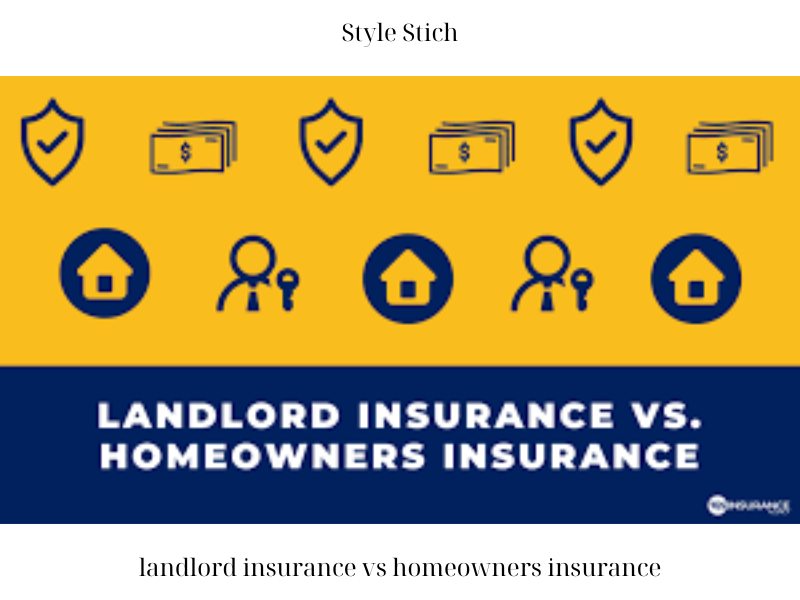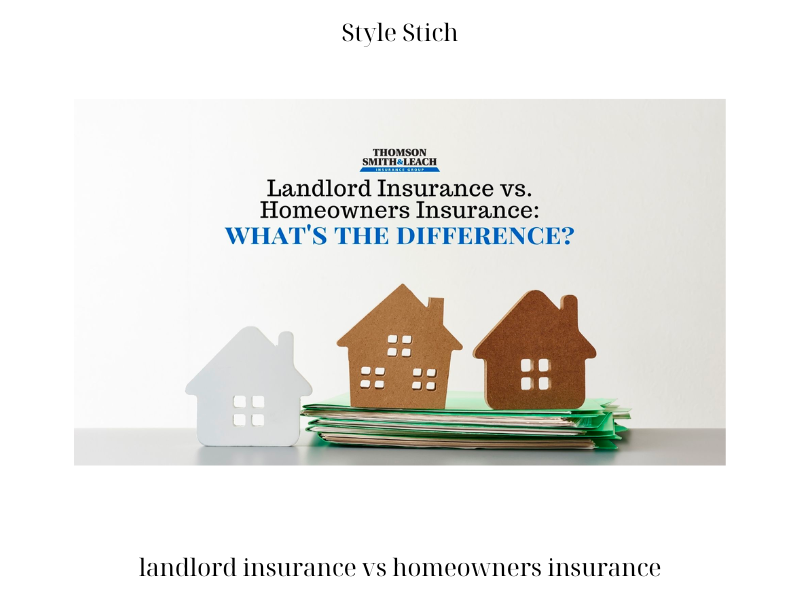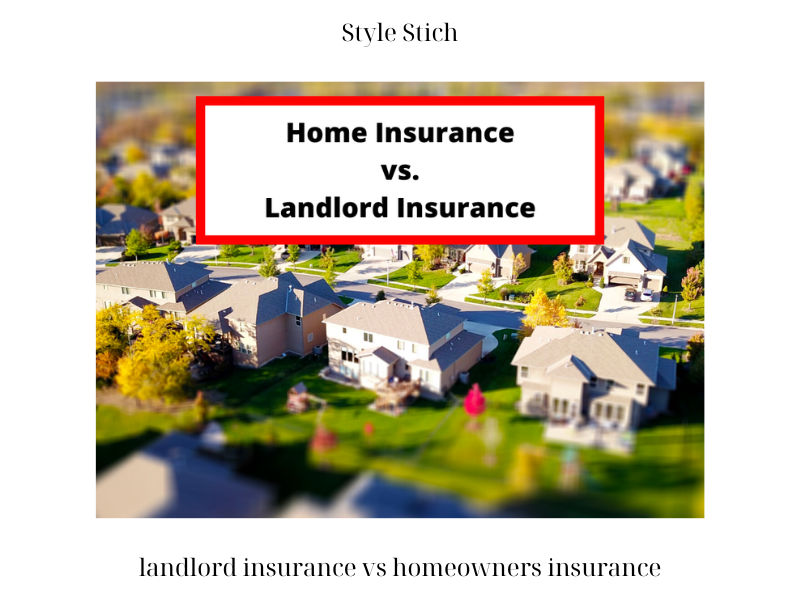Landlord Insurance vs Homeowners Insurance: 6 Key Differences and Benefits
When it comes to protecting your property, whether you’re a landlord or a homeowner, having the right insurance coverage is essentia but it’s important to understand that landlord insurance & homeowners insurance are two distinct policies designed to serve different needs so in this article, Stylestich will explore the six key differences and benefits of landlord insurance vs homeowners insurance. By understanding these differences, you can make an informed decision and ensure that your property is adequately protected.
Landlord Insurance vs Homeowners Insurance: 6 Key Differences and Benefits

Additionally, it’s important to review your insurance policies regularly to ensure they continue to meet your evolving needs. As a landlord, you may need to adjust your coverage if you make significant changes to your rental property or acquire additional properties. Homeowners should also reassess their coverage if they make significant renovations or additions to their homes.
When selecting an insurance provider, consider their reputation, financial stability, and customer service. Look for insurers with experience in the rental property market if you’re a landlord, as they will have a better understanding of your specific needs.
Lastly, keep in mind that both landlord insurance & homeowners insurance have certain exclusions and limitations. Common exclusions may include damage caused by floods, earthquakes, or acts of war. It’s important to understand these exclusions and consider additional policies, such as flood insurance or earthquake insurance, to fill any coverage gaps.

- Coverage for Rental Property:
One of the primary differences between landlord insurance & homeowners insurance lies in the coverage provided for rental properties. Landlord insurance is specifically designed to protect properties that are rented out to tenants. It typically includes coverage for the physical structure, liability protection, and loss of rental income in case of tenant displacement due to covered incidents. Homeowners insurance, on the other hand, focuses on providing coverage for owner-occupied properties and may not include protection for rental activities. - Liability Protection:
Liability coverage is crucial for both landlords and homeowners. However, the scope of coverage differs between the two policies. Landlord insurance typically offers higher liability limits to protect landlords against potential lawsuits resulting from injuries or property damage that occur on the rental property. Homeowners insurance, on the other hand, provides liability protection for incidents that occur on the owner-occupied property, but the coverage limits may be lower compared to landlord insurance. - Loss of Rental Income:
One of the significant benefits of landlord insurance is its provision for loss of rental income. In case your rental property becomes uninhabitable due to covered perils such as fire or severe damage, landlord insurance can compensate you for the lost rental income during the repair or rebuilding period. This feature is not typically included in homeowners insurance, as it is specific to the income-generating aspect of rental properties. - Additional Coverage Options:
Landlord insurance often offers optional coverage add-ons that are tailored to the needs of landlords. These may include coverage for vandalism, legal expenses, wrongful eviction, or property damage caused by tenants. Homeowners insurance, on the other hand, may have limited options for additional coverage, focusing primarily on protecting the owner-occupied property and its contents. - Cost Considerations:
The cost of landlord insurance & homeowners insurance can vary significantly. Generally, landlord insurance tends to be slightly more expensive than homeowners insurance due to the increased risks associated with rental properties. Factors such as the location of the property, the number of rental units, and the property’s condition can affect the insurance premium. It’s important to obtain insurance quotes from reputable providers and compare the coverage and cost to make an informed decision. - Legal Requirements:
While homeowners insurance is not legally required (unless you have a mortgage on your property), landlord insurance may be mandatory in certain cases. Some states or local jurisdictions may require landlords to carry specific insurance coverage, such as liability insurance, to protect tenants and comply with legal obligations. It’s important to research and understand the landlord insurance vs homeowners insurance legal requirements in your area to ensure compliance and adequate protection for your rental property.

Conclusion
Choosing the right insurance coverage for your property depends on your specific situation and needs. Landlord insurance & homeowners insurance serve different purposes, with landlord insurance focusing on protecting rental properties and homeowners insurance focusing on owner-occupied properties. Understanding the key differences and benefits of these policies is crucial in making an informed decision.
Landlord insurance provides coverage for rental properties, including protection for the structure, liability, and loss of rental income. It also offers additional coverage options tailored to the needs of landlords. Homeowners insurance, on the other hand, primarily focuses on protecting owner-occupied properties and may have limitations when it comes to rental activities.
Consider factors such as liability protection, loss of rental income coverage, additional coverage options, and legal requirements when choosing between landlord insurance & homeowners insurance. Compare quotes from reputable insurance providers to ensure you have the right coverage at a reasonable cost.
Regardless of whether you are a landlord or a homeowner, investing in insurance coverage provides peace of mind and financial protection against unforeseen events. By understanding the differences and benefits of landlord insurance & homeowners insurance, you can make an informed decision and safeguard your property investment or your home effectively.